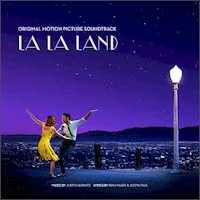Bitrate: MP3@320K/s
Time: 52:23
Size: 119.9 MB
Styles: Jazz vocals
Year: 2003
Art: Front
[5:21] 1. Skylark
[3:59] 2. Love Is Made
[4:35] 3. Chateaux De Joux
[3:40] 4. It's Me O'lord
[5:12] 5. They Call It Jazz
[4:29] 6. Through The Years
[3:50] 7. Runnin' Wild
[5:23] 8. The Maestro
[5:29] 9. The Search
[4:42] 10. Yellow Bird
[5:38] 11. Can You Dig It
Alto Saxophone – James Spaulding; Bass – Ray Drummond; Drums – Jaz Sawyer; Flute – James Spaulding; Piano – Kenny Barron; Soprano Saxophone – Julien Lourau; Tenor Saxophone – Julien Lourau; Vocals – Abbey Lincoln. Recorded on November, 2002 and February, 2003 in New York City.
In a return to the orchestrated settings that she had explored nearly a decade earlier on A Turtle's Dream, Lincoln performs a set rich in variety, with plenty of original tunes that more than hold their own amidst a scattering of classic standards. Whether working with or without strings, she maintains a sophisticated and intimate tunefulness; her adherence to melody, and to subtle phrasing as an alternative to showy improvisation, has always earned comparisons to the work of Billie Holiday, though in this case Lincoln more than matches and arguably surpasses much of the legendary singer's work. Her husky timbre, extraordinary sense of swing at any tempo, and sometimes surprising range make each of these tracks a masterwork of interpretation. Though she has always sought the best accompanists, Lincoln strikes gold here with Kenny Barron, who negotiates the complex melodic structure and chord changes of Cedar Walton's "The Maestro" as if he'd been playing it for years, while on the title track, a duet, he follows and leads her with a dignified medium-tempo gospel feel. Aside from the gimmicky flute chirps on "Yellow Bird," every moment of It's Me, down to the title itself, supports a clear answer to the question "Who is the outstanding jazz chanteuse of our time?" ~Robert L. Doerschuk
In a return to the orchestrated settings that she had explored nearly a decade earlier on A Turtle's Dream, Lincoln performs a set rich in variety, with plenty of original tunes that more than hold their own amidst a scattering of classic standards. Whether working with or without strings, she maintains a sophisticated and intimate tunefulness; her adherence to melody, and to subtle phrasing as an alternative to showy improvisation, has always earned comparisons to the work of Billie Holiday, though in this case Lincoln more than matches and arguably surpasses much of the legendary singer's work. Her husky timbre, extraordinary sense of swing at any tempo, and sometimes surprising range make each of these tracks a masterwork of interpretation. Though she has always sought the best accompanists, Lincoln strikes gold here with Kenny Barron, who negotiates the complex melodic structure and chord changes of Cedar Walton's "The Maestro" as if he'd been playing it for years, while on the title track, a duet, he follows and leads her with a dignified medium-tempo gospel feel. Aside from the gimmicky flute chirps on "Yellow Bird," every moment of It's Me, down to the title itself, supports a clear answer to the question "Who is the outstanding jazz chanteuse of our time?" ~Robert L. Doerschuk
It's Me




















